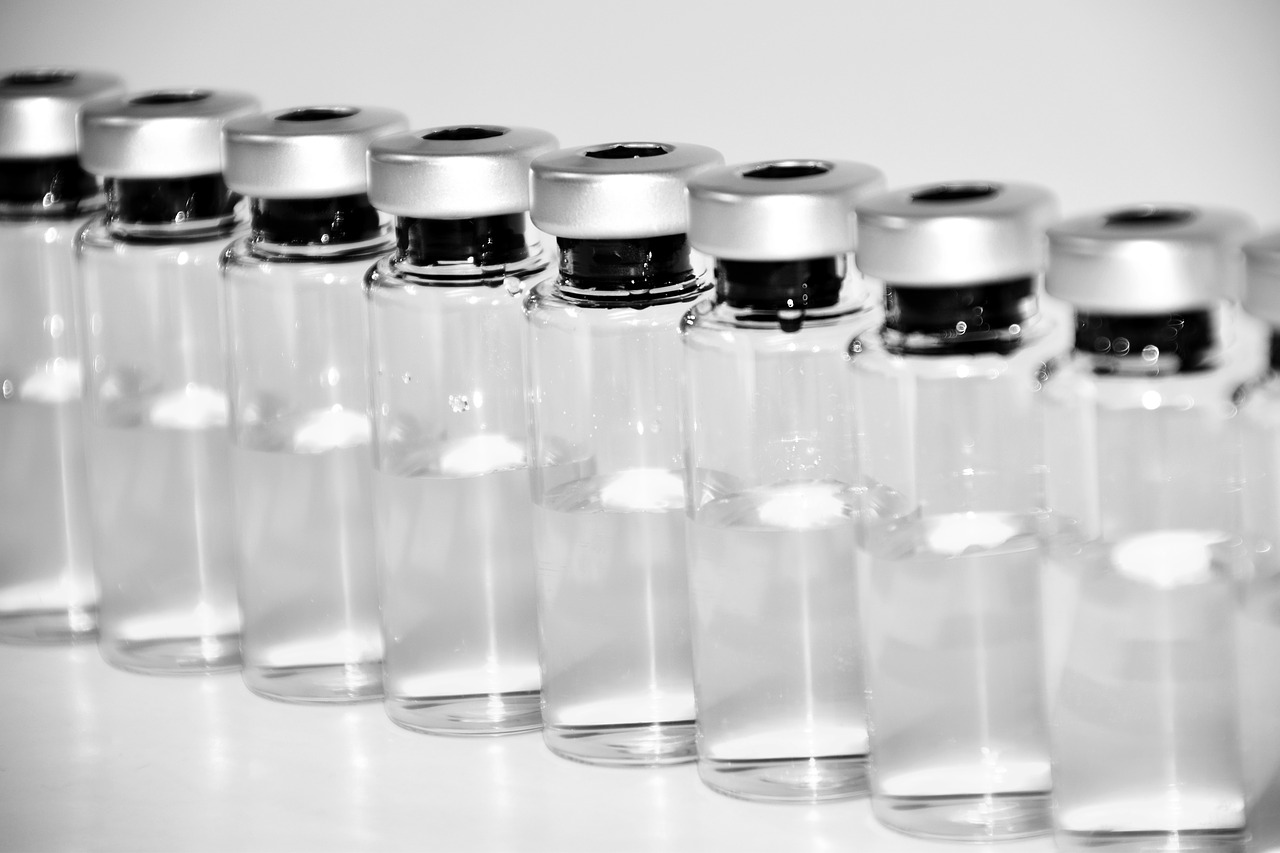Health
Explainer: How clinical trials test COVID-19 vaccines

Such is the worry about the impartiality of the FDA that pharmaceutical companies drew a line in the sand and pledged publicly to “only submit [a vaccine] for approval or emergency use authorization after demonstrating safety and efficacy through a Phase 3 clinical study.” (Pixabay photo)
In the United States, review and licensure of vaccines is the responsibility of the Food and Drug Administration (FDA). But the agency’s handling of emergency use authorizations for two anti-malaria drugs and convalescent blood plasma for the treatment of COVID-19 have led to claims it has become politicized.
Such is the worry about the impartiality of the FDA that pharmaceutical companies drew a line in the sand and pledged publicly to “only submit [a vaccine] for approval or emergency use authorization after demonstrating safety and efficacy through a Phase 3 clinical study.”
“Hell has frozen over,” remarked commentators.
But what is a Phase 3 clinical study? And how does scientific testing provide us with reliable evidence that vaccines not only work but are safe?
Vaccine development
Vaccine development can be thought of as the process of separating the parts of an infectious agent that make us sick, from those that induce an immune response and protect us from future infection. As this separation can be accomplished in myriad ways, vaccines are diverse.
Vaccine candidates for COVID-19 illustrate these diverse approaches. Some, such as SinoPharm’s inactivated coronavirus vaccine, use killed whole coronavirus. Others, such as the Oxford University-AstraZeneca vaccine, modify a different virus (in this case, chimpanzee adenovirus) to express coronavirus proteins. Yet others, such as Moderna’s mRNA vaccine, use only small bits of viral genetic material.
In Canada, the oversight of vaccines is shared by Health Canada and the Public Health Agency of Canada. The scientific evaluation of vaccines involves animal testing, human clinical trials and post-approval surveillance. In many regards, the evaluation of vaccines is the same as the process for drugs. Because vaccines are given to healthy people, however, there is an even greater emphasis in vaccine testing on safety.
Animal testing
The first step in evaluating a vaccine is animal testing. Animals are given differing doses of vaccine to check for adverse events and an immune response.
As the virus that causes COVID-19 is new, there was no animal model for the disease. Recent work has demonstrated that ferrets, cats and some non-human primates are prone to infection and can spread it to others. Animal testing provides information about safety (and perhaps efficacy) before a vaccine is tested on humans.
Human clinical trials
Human testing in clinical trials is divided into three phases. Ensuring the safety of a vaccine is the prime concern through all phases of clinical trials. Vaccine efficacy is evaluated in different ways across the trial spectrum. Early-phase trials look for the production of antibodies against the virus, while late-phase trials evaluate whether the vaccine in fact prevents people from getting sick.
Phase 1 trials are the first evaluations of a vaccine in humans. These trials recruit 10 to 100 healthy volunteers who receive different doses of vaccine. Common adverse events to a vaccine include redness or soreness at the injection site, muscle pains, headache and fever. Blood is also drawn from the volunteers to assess the immune response to the vaccine, particularly the rise in antibodies and whether antibody levels are similar to those in people who have had the disease.
Phase 2 vaccine trials are similar to Phase 1 trials in terms of their focus on adverse events and immune response. Phase 2 trials, however, include hundreds of healthy volunteers who are more diverse to give a better indication of the safety and immune response in people likely to receive the vaccine in the future.
As Phase 1 and 2 trials involve relatively small numbers of people, they only give us information on vaccine side-effects that are very common (affecting more than 10 per cent of people) and common (affecting more than one per cent of people). Vaccine efficacy is only evaluated indirectly through measuring antibody levels.
It is only the Phase 3 trials that can provide a pivotal demonstration that a vaccine both works and is safe. Phase 3 vaccine trials are large randomized controlled trials conducted in the community. In these trials people either receive the vaccine or a placebo. If fewer people who received the vaccine become sick compared to those who received placebo, we have direct evidence that the vaccine prevents disease.
Read more:
Ethics must not be ignored when testing COVID-19 vaccines
A Phase 3 trial may involve tens of thousands of volunteers who receive the vaccine, further providing reliable information on adverse events, including those that are uncommon (affecting fewer than one per cent of people) or rare (affecting fewer than 0.1 per cent of people).
A vaccine may be licensed for use after a successful Phase 3 trial.
Of the 321 vaccines for COVID-19 in development, 27 are in Phase 1 or 2 trials and six are being evaluated in Phase 3 trials. In total, these trials seek to enrol 280,000 people from 34 countries. No COVID-19 vaccine has been licensed in Canada or the United States.
Post-approval surveillance
Once a vaccine is licensed, continued monitoring for safety is critical. Reliable detection of very rare (affecting fewer than 0.01 per cent of people) vaccine adverse events requires information on hundreds of thousands of people. The Canadian Adverse Events Following Immunization Surveillance System monitors the safety of marketed vaccines, publishes reports regularly and identifies the need for further study should a safety issue be identified.
Provided that a COVID-19 vaccine successfully navigates human clinical trials and is subjected to continuing safety monitoring after it is licensed, we have good grounds to believe that the vaccine both works and is safe.![]()
Charles Weijer, Professor of medicine, epidemiology & biostatistics, and philosophy, Western University
This article is republished from The Conversation under a Creative Commons license. Read the original article.





















